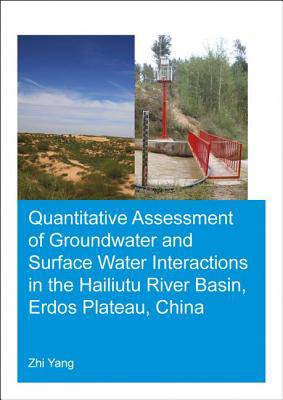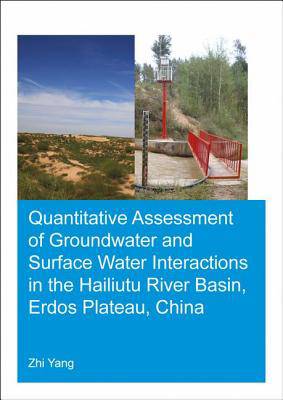
- Retrait gratuit dans votre magasin Club
- 7.000.000 titres dans notre catalogue
- Payer en toute sécurité
- Toujours un magasin près de chez vous
- Retrait gratuit dans votre magasin Club
- 7.000.000 titres dans notre catalogue
- Payer en toute sécurité
- Toujours un magasin près de chez vous
Quantitative Assessment of Groundwater and Surface Water Interactions in the Hailiutu River Basin, Erdos Plateau, China
Zhi YangDescription
This study presents a multi-disciplinary approach for investigating the interactions between groundwater and surface water in the semi-arid Hailiutu catchment in the Erdos Plateau, Northwest China. The study consists of statistical detection of river flow regime shifts at the basin level; multiple in-situ measurements for quantifying groundwater discharges using hydraulic, hydrochemical and temperature methods at a local scale; analysis and simulation of impacts of different land use scenarios on groundwater and surface water interactions at the sub-catchment scale; and the quantification of temporal and spatial groundwater and surface water interactions with hydrochemical tracers and modelling methods at the basin scale.
The study found that the river flow consists of mainly groundwater discharges at all scales. The river flow regime has been intensively altered by human activities, such as the construction of reservoirs, water diversion, groundwater exploitation, and reforestation. Water use by plants and crops consumes majority of the precipitation. Groundwater sustains vegetation growth and feeds river discharges. The water resources and ecosystem management priority should reduce evaporative water uses by promoting dry resistant plant species for vegetating sand dunes and lower irrigation demand crops for socio-economic development. Furthermore, the Hailiutu River catchment must manage the groundwater recharge for water resource conservation and the maintenance of healthy ecosystems.
Spécifications
Parties prenantes
- Auteur(s) :
- Editeur:
Contenu
- Nombre de pages :
- 170
- Langue:
- Anglais
- Collection :
Caractéristiques
- EAN:
- 9781138596870
- Date de parution :
- 09-05-18
- Format:
- Livre broché
- Format numérique:
- Trade paperback (VS)
- Dimensions :
- 165 mm x 239 mm
- Poids :
- 340 g







